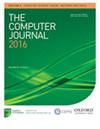KEFSAR:基于高精度预测的可充电物联网太阳能感知路由策略
IF 1.5
4区 计算机科学
Q4 COMPUTER SCIENCE, HARDWARE & ARCHITECTURE
引用次数: 0
摘要
太阳能的高能量密度使无线传感器网络在室外监控应用中具有优势。然而,由于频繁的天气变化、建筑物和树木的遮挡等因素,长期稳定的监测是具有挑战性的。现有的研究通常采用两种技术来解决上述问题:(1)能量预测算法,(2)能量感知路由策略。然而,在实际部署中,频繁的天气变化会大大降低现有预测算法的准确性。当使用这些算法作为能量感知路由的支持时,网络生存期不理想。现有的路由策略需要进一步改进。由于缺乏环境适应性,节点能量消耗快,死亡率高。因此,针对太阳能无线传感器网络的长期稳定性,本文提出了一种基于分类和递归神经网络的预测算法,并结合前人研究的阴影判断方法对预测值进行校正。在此基础上,提出了一种可根据太阳强度灵活调整目标的路径优化模型。实验结果表明,在室外小传感器场景下,该预测和路由调度算法可以显著提高能量预测精度(30-50%),延长网络寿命(10-42%)。本文章由计算机程序翻译,如有差异,请以英文原文为准。
KEFSAR: A Solar-Aware Routing Strategy For Rechargeable IoT Based On High-Accuracy Prediction
Abstract The high energy density of solar energy gives wireless sensor networks advantages in outdoor monitoring applications. However, long-term stable monitoring is challenging due to frequent weather changes, shading by buildings and trees, etc. The existing research usually uses two technologies to solve the above problems: (1) the energy prediction algorithm, and (2) the energy-aware routing strategy. However, in an actual deployment, frequent weather changes can significantly reduce the accuracy of the existing prediction algorithms. When using the algorithms as the support for energy-aware routing, the network lifetime is less than ideal. The existing routing strategies are in need of further improvement. Because of its lack of environmental adaptability, nodes consume energy quickly and have a high mortality rate. Therefore, aiming at the long-term stability of solar wireless sensor networks, this paper proposes a prediction algorithm based on classification and recurrent neural networks, and integrates the shadow judgement method from our previous research to correct the predicted values. Furthermore, we propose a routing optimization model that can flexibly adjust the target according to the solar intensity. The experimental results show that the prediction and routing scheduling algorithm can significantly improve the energy prediction accuracy (30–50%) and prolong the network lifetime (10–42%) in outdoor small sensor scenarios.
求助全文
通过发布文献求助,成功后即可免费获取论文全文。
去求助
来源期刊

Computer Journal
工程技术-计算机:软件工程
CiteScore
3.60
自引率
7.10%
发文量
164
审稿时长
4.8 months
期刊介绍:
The Computer Journal is one of the longest-established journals serving all branches of the academic computer science community. It is currently published in four sections.
 求助内容:
求助内容: 应助结果提醒方式:
应助结果提醒方式:


